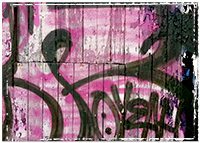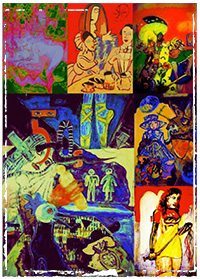“Everything is connected, even the parts we don’t like, especially the parts we don’t like.”
― Julian Barnes, A History of the World in 10½ Chapters.
Starting a PhD in the midst of a pandemic has been slightly challenging. Can I lay the blame on my grandmother and my uncle for dying within two months of each other? Or on my working-class father for his soon-to-be unemployment? Or on my sister for feeling drained and exhausted after her night shifts at hospital? Or on my friend for calling me, distressed, after she has just witnessed her neighbour jumping out of his window?
Yes, 2020 has been a challenging year.
Several ideas ran through my head as I thought about this article. Would I talk about how difficult it has been to write? Or about my newly self-imposed daily routines? Or about not being able to work from Wetherspoons (which, as I am sure you would agree, is a rather unfortunate event)? All of these are concerns in their own right. But I’m more interested in connectedness. Because that is what matters right now. We are all going through these “unprecedented times” together, hoping that our emails will find each other “well” (i.e. surviving).
I will not pretend that coping with grief and distress has been easy, but I do think that a few things have kept me safe and sane. By a few things, I mean genuine conversations and peer support.
It is a truth universally acknowledged that genuine communication tends to result in effective communication which in turn makes our lives easier. In other words, if your little world plunges into the abyss, do let people know. Tell your friends, your peers, your supervisors. While they will not be able to resuscitate your relatives, they will be able to help you with your work. Current PhD discourses tend to emphasize/justify the fact that “doing PhD can negatively impact one’s mental health.” Although there are valid reasons for this discourse, I think that there may be another side to the coin. If we are excited about what we are doing and if we think that our work matters, why not try to find solace in it when everything else is out of control? I know that it is difficult to thrive in your work when concerns overflow. Having a lot on your mind may also mean that you would have to change your life and work model/structure. I have asked my supervisors if we could meet more often because I thought that being more structured would kill two birds with one stone by helping me (1) increase socialisation and relationship-building and (2) do some kind of work on a regular basis. These external commitments have been very helpful to me.
Whilst talking about PhD-related matters is important, sharing successes, concerns, beliefs and bad jokes is equally important (if not more). To this end, I would recommend getting involved with the communities where you live and work. This semester, I have tried to get involved with the new communities I was joining (BCU, among others) while staying close to the communities I (physically) left. I spent quite some time conversing with new acquaintances/colleagues while keeping in touch with my friends, family, and former mentors. Some of the conversations I have had about work, life, poetry, and research have been deeper and more intimate than expected. The current climate allows us to appreciate our shared vulnerabilities. I have certainly learnt a lot from these interactions. And, after all… A literature review is a conversation. A supervision is a conversation. A walk can leave space for internal conversations. Research is an ongoing conversation with the world which we inhabit. These conversations have made me realise that we are all part of the world, and that, in order to navigate our way through it, we really do need to throw away the myth of the lone genius. Or the myths of the strong and independent researchers. Despite what the neo-liberal university would like us to think, our work has always been about people (be they alive, dead or fictional). Embrace community and solidarity. Connectedness is the way out of the abyss – it always will be.


